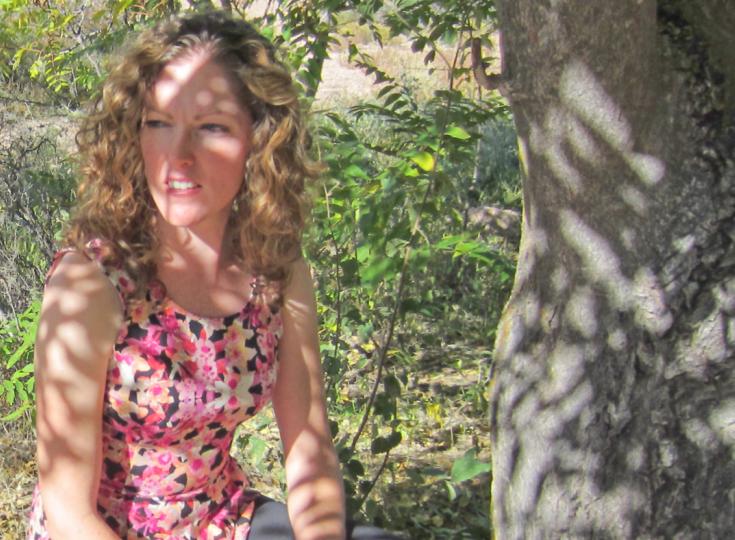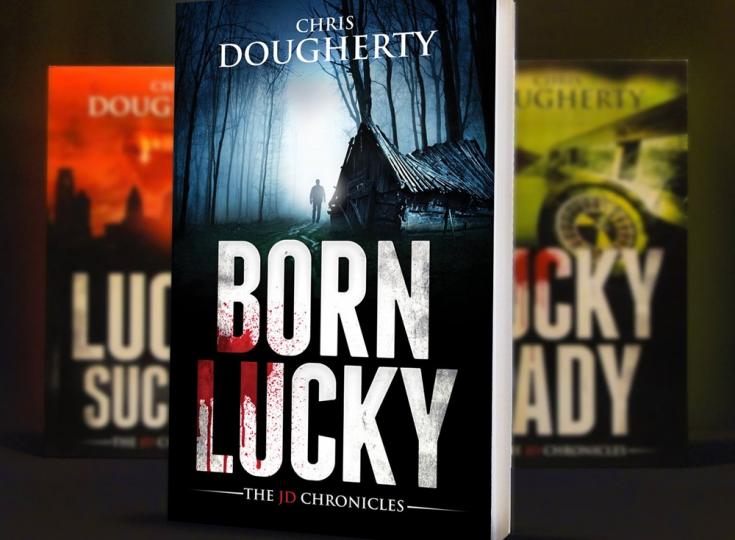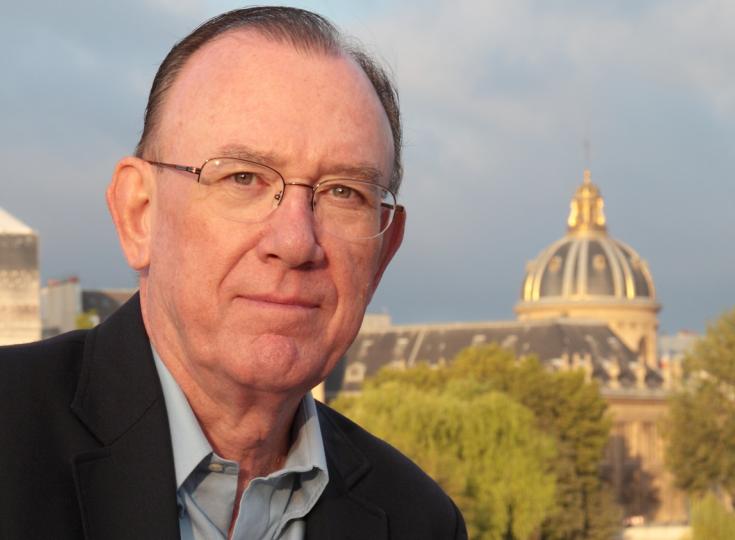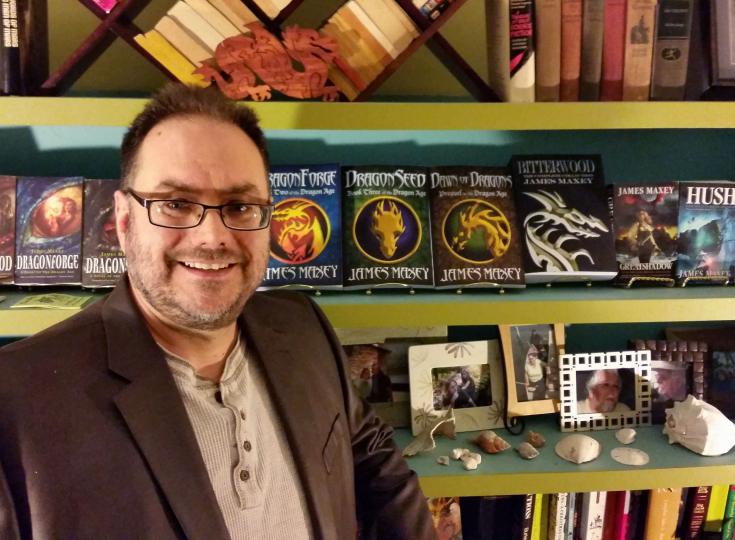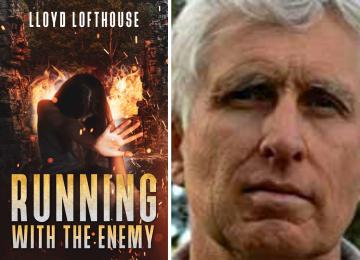Corine Gantz - Mystery, Intrigue, Adventure
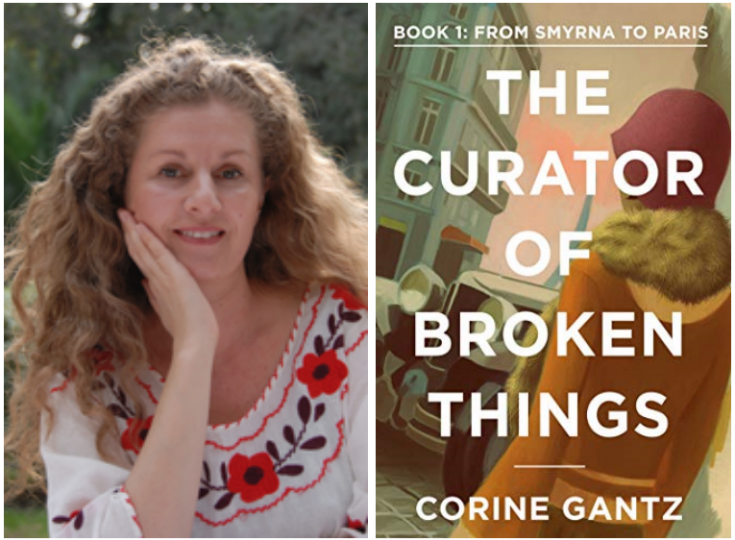
Corine Gantz was born in France, where she spent the first twenty years of her life. She studied Contemporary Arts at the Sorbonne, and has worked in advertising and marketing in Paris, San Francisco, and Los Angeles. Corine lives and writes near Los Angeles with her husband Joe, a documentary filmmaker. They have two very creative sons working in music and film. Her new book trilogy, The Curator of Broken Things, is a fast-paced three-part novel weaving multiple viewpoints across a century and is set in Paris, Algeria, and the South of France. As our Author of the Day, she tells us all about it.
Please give us a short introduction to what The Curator of Broken Things Book 1 is about.
The Curator of Broken Things is a family saga trilogy that weaves three viewpoints across one hundred years, and four continents. The first book starts with Cassie, the modern-day character, who lives in California. Cassie finds herself lost in life just as she travels to Paris and tries to reconnect with her hostile family. She accidentally discovers an estranged aunt and from there she begins to unearth the three generations of secrets that culminated in the predicaments she finds herself in.
Was there anything in particular that made you want to tackle this?
I’m amazed at how real and important our modern-day struggles feel, and how difficult it is to cope, how scary and intimidating life can be. But our concerns would seem trivial to our ancestors, many of whom endured life and death decisions, escapes from war-torn countries and unimaginable loss, dangers, and suffering. How did they do it? How dare we indulge in self-pity? But we do. Because what Eckart Tolle calls the ‘pain body’ is there, in our DNA, passed down from one generation to the next. I wanted to tell a story that would illustrate this - and probably ended up writing something very different.
Why did you decide to make this story go back all the way to 1902?
As other writers will relate, we might be inspired to write a certain story, populated with certain characters, but once we create characters, they tend to develop a will of their own. My characters led me one hundred years into the past, and that’s where I had to follow them, albeit kicking and screaming at times.
How much research did this trilogy require from you to make the history part of it feel authentic? What was the most interesting aspect of this research?
My first novel was very much grounded in the here and now. This book (it was never intended to be a trilogy, but I realized late in the game that it was already 800 pages long) started in modern-day Paris, a time and place I am comfortable with. The book was purring along when, to my dismay, elements of the past came up, with relatives from places that no longer exist, such as the Ottoman Empire of the 1900s. The pandora’s box was open and I had no choice but to get to work on historical and geopolitical facts. I’m a very ‘visual’ writer, I describe what I see in my mind’s eye. Thank you, Pinterest, and old postcards, for visuals of an Ottoman market in 1920, the French Riviera in 1939, Algiers during the Vichy Régime. Wherever my fictional characters ended up, I made sure that their clothing, language, preoccupations, and environments were as historically accurate as possible. I spent a lot of time in libraries and bookstores in France and in the United States and used historical documents and accounts, old maps, history books. Everything I could get my hands on. It took years of very hard work because my readers are smart and educated and I am always afraid to let someone down. But I’m not a historian. On occasion, I will receive a correction from a reader, and run back to check everything maniacally, making corrections to the book when needed.
Readers say that this was a thrilling read. How do you manage to keep the pace in an epic saga like this?
My job was to show up at my keyboard and type as fast as possible as my characters whispered plot twists to me. No matter how thrilling the reading of the book might be, the writing of it was exhilarating.
Besides writing, what other secret skills do you have?
I can make mayonnaise from scratch. Also, I raise earthworms. My secret power is my ability to be alone with my thoughts. To a fault. Being with people, that’s a challenge for me.
Why did you title this "The Curator of Broken Things"?
I think that we all are curators of broken things, we are the physical manifestation of our ancestors’ dreams, pain, hopes, aches, and unknowingly carry that with us that ache, that burden, and that responsibility. And we hang on to broken things, broken selves, broken people because familiarity is far less scary than letting go.
Which character was the most challenging to create?
There are characters in the book inspired by people in my life. It was difficult to give these people respect and care while at the same time follow the characters’ free will to be jerks, and selfish, and immature, and flawed.
Family dynamics feature prominently in the trilogy. Why was this an important topic to explore?
Our families make us, like it or not. They make us through love and nurturing and they make us through abuse or neglect. Whether we are contrarians or compliants, we can never completely escape the bond. I loved to explore these connections and the complex tangle of exasperation and adoration we feel for our relatives.
Which book in the trilogy is your personal favorite and why?
The third book because all comes together in a satisfying and surprising way. It gelled perfectly at some point, and I am proud of that. I did not want to write a series that does not know where or how to end. I hoped for a crescendo and I’m thrilled to have achieved that in ways that even surprised me.
You were born in France. How has this influenced your writing?
I was always a writer at heart, but I found the French language to be too much about form and rules. Too rigid and judgmental. Writing in English was freeing to me, as I had no pretense about style and therefore had no choice but to focus on content. I think that being French – a first-generation immigrant (I came to the US when I was 23) I will forever feel like a fish out of water in France as well as in the US. I observe, I compare, I watch. Hopefully, this makes me a better writer.
Do you have any interesting writing habits? What is an average writing day like for you?
My most interesting writing habit is that I write in my mind, first. I am always in my head, having conversations between characters. So, I might be having coffee with you, having a conversation, or at the grocery store picking up milk, but at the same time, I will be elsewhere, an imaginary place where the fictional story takes place. –They might have a term for that in psychiatry. By the time I get to my desk, I better type as fast as possible just to keep up. I usually write in bursts of 45 minutes or about 1000 words, whichever comes first. After 45 minutes I need a nap. Or I go feed my worms.
What are you working on right now?
There is a story happening in my head right now. It is percolating, brewing but it is still shapeless. Soon a character will emerge and tell me what to do. I know the story is happening in France. When it comes to locations, my heart always seems to pull in that direction.
Where can our readers discover more of your work or interact with you?
Follow me on Instagram where I almost never discuss writing but where you can see nice photos of sunsets and my vegetable garden and things that I find hilarious. Also, make sure to subscribe to my newsletter.
